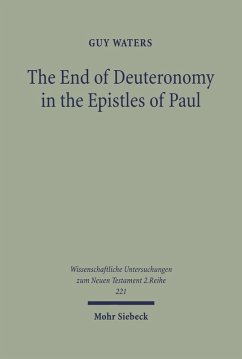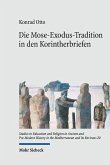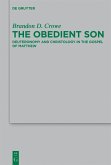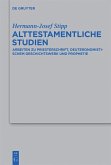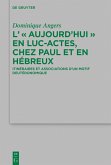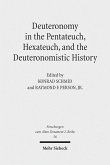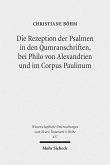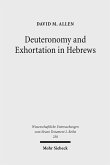Guy Waters examines Paul's explicit quotations of Deut 27-30, 32, as well as his 'explicit, verbal references' of Deuteronomy: texts that are not attended by a citation formula but are recognizably texts of Scripture because of substantial verbal correspondence between the Pauline text and the text of LXX in question. The author investigates whether these quotations and references evidence any particular pattern of reading, and what relationship Paul's readings bear to contemporary Second Temple Jewish readings of these chapters of Deuteronomy. He also analyzes the relationship to other early Christian readings of Scripture, and to Paul's self-conception as apostle to the Gentiles. He concludes that Paul, outside Romans, understood both Deut 27-30 and Deut 32 as distinct units within Deuteronomy. These two units come together only in Romans, where Paul reads Deuteronomy 27-30, 32 in order to explain the particular circumstances of his apostolic ministry. Paul also warrants the entry of the Gentiles into the people of God, and gives expression to a future hope for Israel. These particular readings are often formally parallel with contemporary Second Temple Jewish readings of these chapters of Deuteronomy, but conceptually independent from them.These readings suggest that the reading of Scripture was constituent not only to Paul's identity as apostle to the Gentiles but also to his apostolic labors in training his Gentile churches. Born 1975; B.A., University of Pennsylvania; M.Div., Westminster Theological Seminary; Ph.D., Duke University; Assistant Professor of Biblical Studies, Belhaven College.
Dieser Download kann aus rechtlichen Gründen nur mit Rechnungsadresse in A, B, BG, CY, CZ, D, DK, EW, E, FIN, F, GR, HR, H, IRL, I, LT, L, LR, M, NL, PL, P, R, S, SLO, SK ausgeliefert werden.

